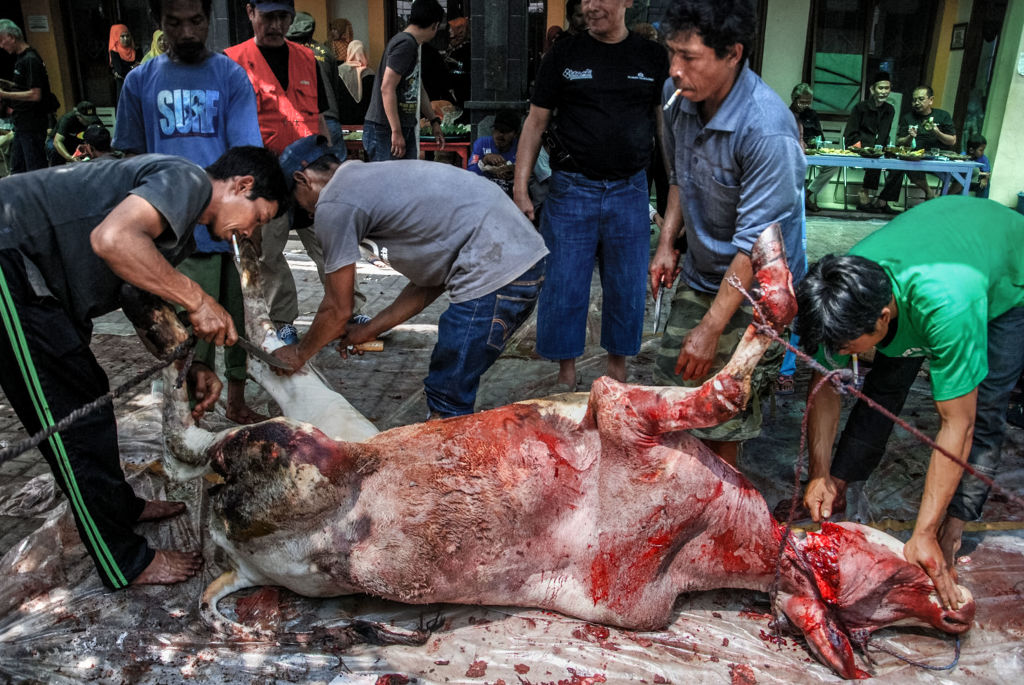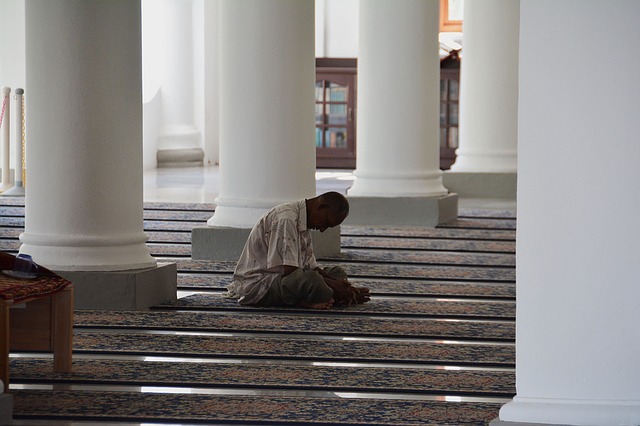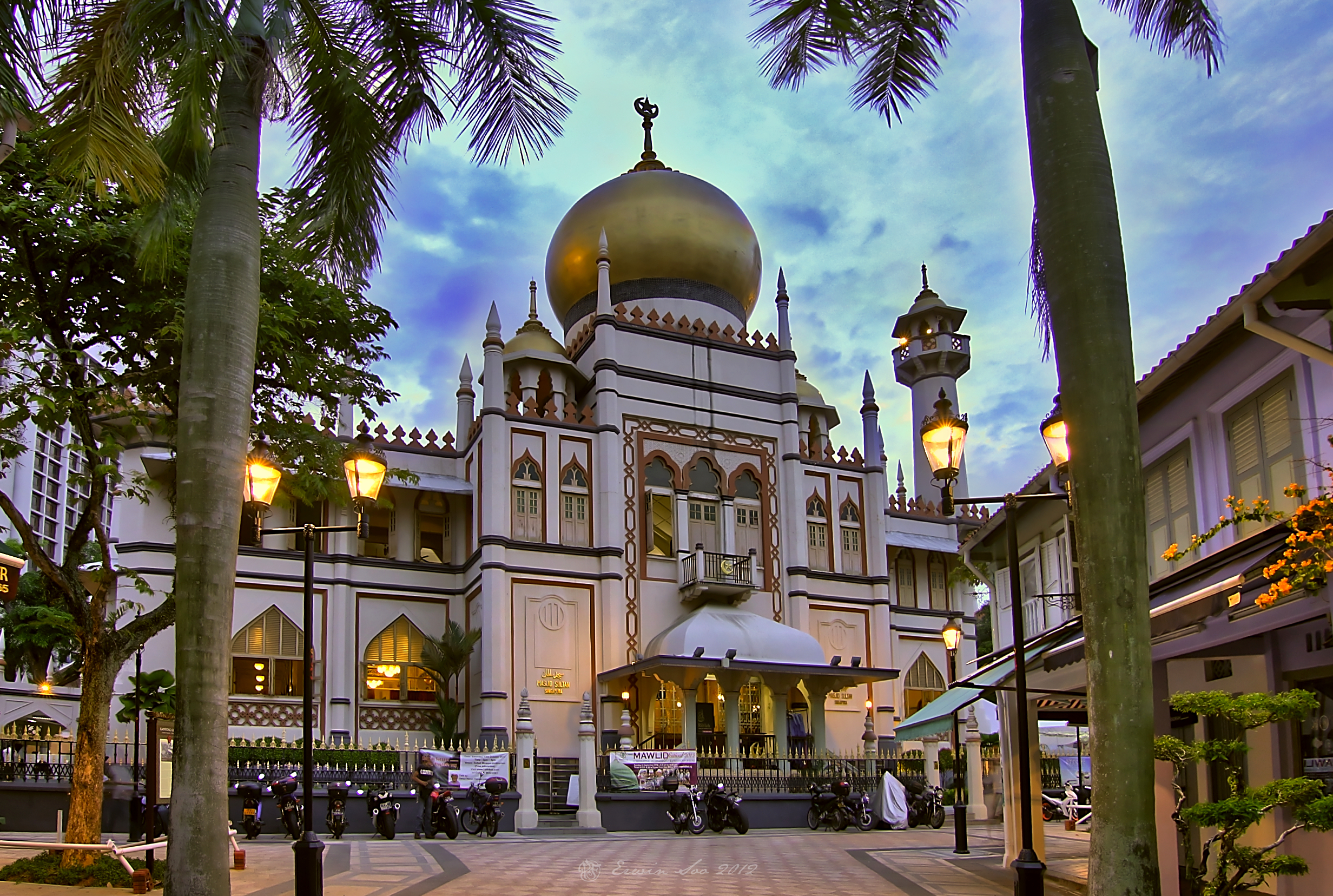While most Singaporeans enjoy this long weekend public holiday — especially students and teachers, who enjoy an extra day off for Teachers' Day — Muslims are spending it in Hari Raya Haji celebrations.
However, if you are not Muslim, it's possible you don't really know what it's for or about — it's possible you might not even know the difference between this and Hari Raya Puasa.
So for your benefit, take a few minutes to read this article and get a better understanding of answers to questions you might not have thought to ask before:
1. "Hari Raya Haji is the same as Hari Raya Puasa."
Nope, these are two different celebrations during the Islamic year.
Hari Raya Puasa (or Eid al'Fitr in Arabic), marks the end of the Muslim fasting month of Ramadan. Hari Raya Haji (or Eid al'Adha) commemorates the hajj or pilgrimage to Mecca in Saudi Arabia, which all Muslims are expected to perform at least once in their lifetimes.
The festival also honours the Prophet Abraham (or Ibrahim), who was willing to sacrifice his son Ishmael (or Ismail) as a test of faith. At the last moment, God intervened by sending a ram to be sacrificed in place of Abraham's son. This was done to recognise Abraham's faith, and also to remind Muslims that ritual sacrifice of humans in God's name is forbidden in Islam.
 Image via Pixabay
Image via Pixabay
2. "Hari Raya Haji falls on a random day every year."
You can think of Hari Raya Haji in the same way as the Chinese Dumpling Festival, perhaps, in terms of timing.
It actually has a fixed date, set on the 10th day of Dhul Hijjah, the 12th and final month of the Islamic calendar. However, the Islamic calendar is a lunar one based on the the phases of the moon, and it is different from the Gregorian calendar based on the solar year more commonly used today.
That's why your public holiday ends up on a different day every year.
3. "Hari Raya Haji is about the Hajj, so it's only for pilgrims."
So does it mean that only Muslims who have completed or who are completing the Hajj this year are involved? Nope, all Muslims have something to do today.
In the morning, Muslims go to the masjid (mosque) for Eid prayers, and listen to a special khutbah (sermon) afterwards. Then the korban (ritual sacrifice) is performed. After the sacrifice is completed and the meat has been collected, Muslims will go visiting with their families.
4. "The animals slaughtered during the Korban are tortured to death."
 Indonesians slaughter a cattle in their neighborhood in Bandung, West Java province, on September 1, 2017 as part of Eid al-Adha celebrations.
Indonesians slaughter a cattle in their neighborhood in Bandung, West Java province, on September 1, 2017 as part of Eid al-Adha celebrations.
Muslims in Indonesia are celebrating Eid al-Adha, the "Feast of Sacrifice", which marks the end of the annual pilgrimage or hajj to the Saudi holy city of Mecca and in remembrance of Abraham's readiness to sacrifice his son to God. / AFP PHOTO / TIMUR MATAHARI (Photo credit should read TIMUR MATAHARI/AFP/Getty Images)
Of course not. In fact, the prescribed method of slaughter is actually one of the quickest and most humane ways to end an animal's life. According to MUIS:
"The Islamic method of slaughtering dictates that both the animal's oesaphagus and tranchea be cut, but not beheaded.
Cutting both of the tracts will ensure that the carotid artery and jugular vein will be severed. This will result in sudden loss of copious amount of blood from the brain and the heart. The sudden loss of blood from the brain will cause it to shut down almost immediately, ensuring faster and almost painless death."
Vegetarians and vegans may still oppose the killing of an animal for any reason, whether humanely or inhumanely, and Muslims seek their respect and understanding on this.
You could think about it this way: if you accept that others can eat meat, then the korban is no different.
 Image via Pixabay
Image via Pixabay
[related_story]
5. "The animals are slaughtered for no reason."
It would indeed be a terrible waste if that were true. That's why following the korban, the meat from the slaughtered animals is collected and divided into three portions.
One third is given to the poor and needy, one third is for your friends and family, and one third is for yourself. If you like, you can give your third away to the needy too.
This way, no one in the Muslim community is left out and everyone will have enough food to celebrate.
We hope this has been interesting and informative. Why not surprise a Muslim friend with your new knowledge the next time Hari Raya Haji rolls around?
Top image via Thousand Wonders
If you like what you read, follow us on Facebook, Instagram, Twitter and Telegram to get the latest updates.
